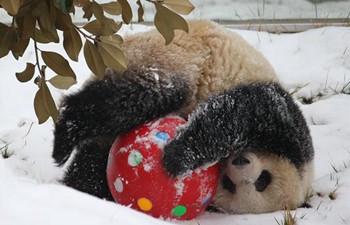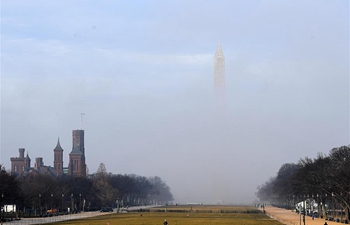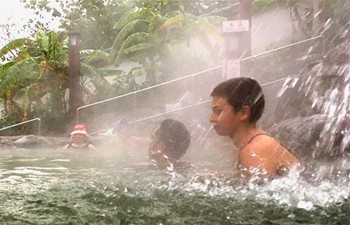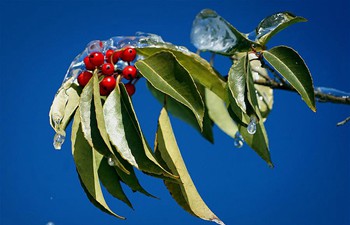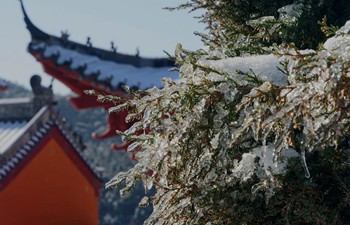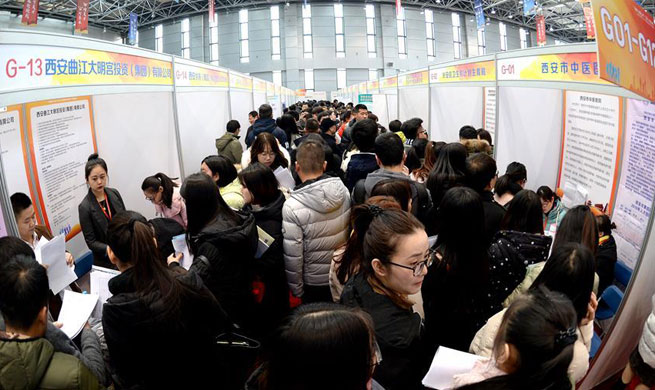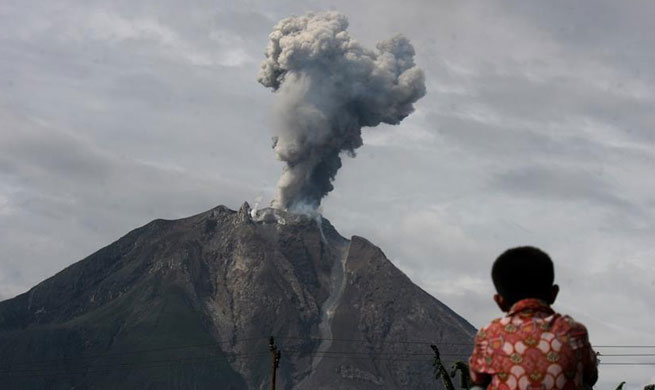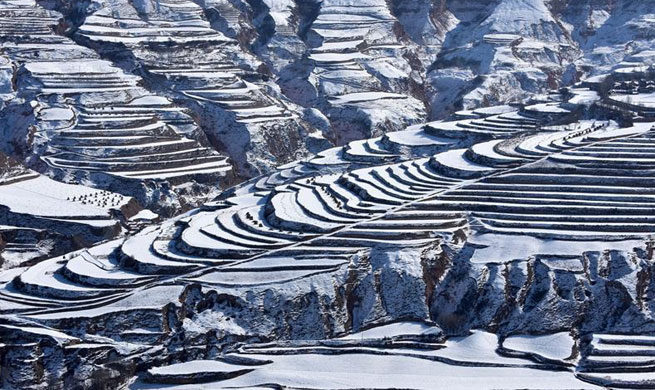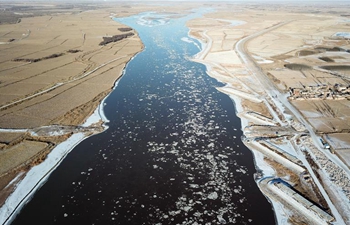OSLO, Jan. 10 (Xinhua) -- As warmer winters due to climate change have often caused unsatisfactory ski conditions in many places across the world, a team of researchers in Norway has been trying to develop a way to produce snow in an environmentally friendly way, even at higher temperatures.
The efforts have been made within the "Snow for the Future" project, which was launched a year ago by the Norwegian Ski Federation and Trondheim municipality, together with researchers from SINTEF, one of Europe's largest independent research organizations, and the Norwegian University of Science and Technology (NTNU).
"The new system will be designed with natural working fluids, to be more environmentally friendly and easier to have heat recovery," Trygve Eikevik, a professor at NTNU's Department of Energy and Process Engineering and a key person in the project, told Xinhua.
Researchers believe one feasible approach is to develop heat pumps where the cold side can be used to produce snow, while the warm side is used for heating.
"We can have this new solution using CO2 as a working fluid, totally fully heat recovery, so you can use the heat for heating buildings and processes whatsoever you need for your activities," Eikevik said.
When temperatures are low enough, traditional tools, like snow guns or snow lances, can be used to produce snow, but when the temperatures increase, this type of machinery can be useful as it "can basically produce snow at any temperatures," he said.
According to Eikevik, a new prototype of the snowmaking machine is expected to be made in the middle of this year and will be placed at the Granasen ski center near Trondheim in central Norway.
Marit Gjerland, a ski run consultant for the Norwegian Ski Federation, said the all-weather snow system could help to maintain skiing traditions and possibilities for skiing not only in traditional skiing countries, but also provide a chance to open up new markets.
It could also reduce risk for the organizers of ski competitions and develop the mass and elite sports relying on stable snow conditions, she said.




